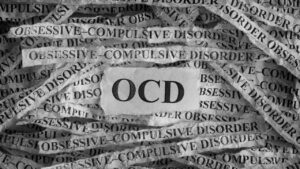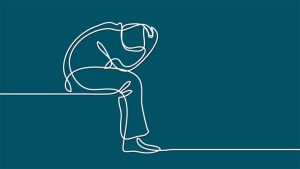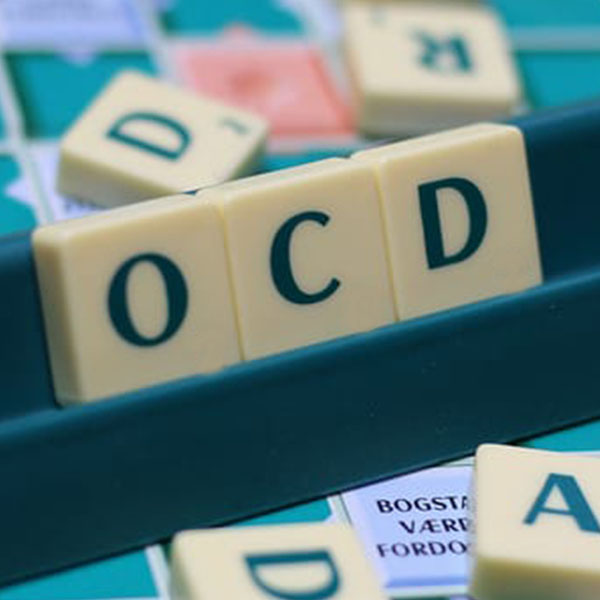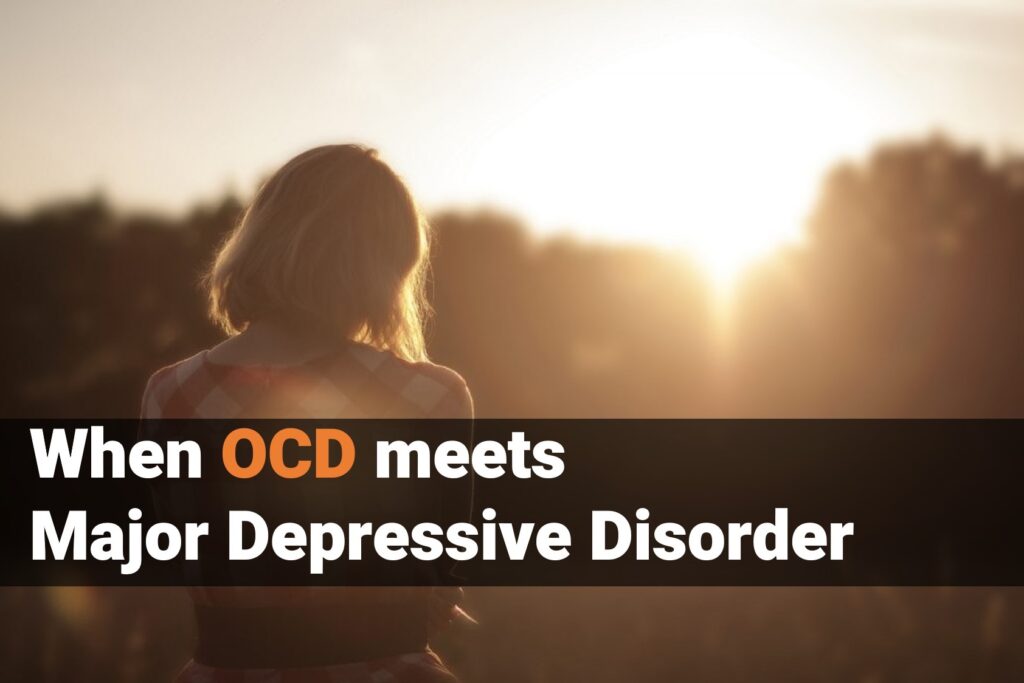Living with OCD or depression can be incredibly difficult. These conditions can make it hard to do everyday tasks and can cause a great deal of emotional pain. If you are struggling with OCD or depression, it is important to get help. There are many resources available to you, including therapy and medication. In this blog post, we will discuss how to deal with OCD and depression. We will provide advice on how to manage your condition and find support from loved ones.
Contents
What Is OCD?
 OCD is an anxiety disorder that is characterized by repetitive, intrusive thoughts (obsessions) and/or rituals (compulsions). People with OCD often feel that they need to perform certain rituals to ward off some impending disaster or keep themselves safe. For example, a person with OCD may feel the need to wash their hands over and over again to prevent themselves from getting sick.
OCD is an anxiety disorder that is characterized by repetitive, intrusive thoughts (obsessions) and/or rituals (compulsions). People with OCD often feel that they need to perform certain rituals to ward off some impending disaster or keep themselves safe. For example, a person with OCD may feel the need to wash their hands over and over again to prevent themselves from getting sick.
People with OCD often recognize that their thoughts and behaviors are excessive and unreasonable, but they feel powerless to control them. This can lead to a great deal of distress. OCD can interfere with work, school, and personal relationships. There may be many factors that contribute to the development of OCD, including genetics, brain chemistry, and life experiences.
What Is Depression?
 Depression is a serious medical illness that negatively affects how you feel, the way you think, and how you act. Fortunately, it is also highly treatable. Depression causes feelings of sadness and/or a loss of interest in activities once enjoyed. It can lead to a variety of emotional and physical problems and can decrease a person’s ability to function at work and at home.
Depression is a serious medical illness that negatively affects how you feel, the way you think, and how you act. Fortunately, it is also highly treatable. Depression causes feelings of sadness and/or a loss of interest in activities once enjoyed. It can lead to a variety of emotional and physical problems and can decrease a person’s ability to function at work and at home.
Depression makes one feel hopeless, helpless, and worthless. These negative feelings make it hard to stick with treatment. Depression can also lead to physical problems such as sleep disorders, fatigue, and pain. Sometimes there may also be many negative thoughts going through one’s head, which can make it hard to concentrate or make decisions. It is important to realize that these symptoms are part of the illness and not a sign of personal weakness.
People with OCD often suffer from depression as well. Studies have shown that OCD and depression often go hand-in-hand. Depression can make OCD symptoms worse and vice versa. This is because the two illnesses share many common features, such as negative thoughts, rumination, and avoidance.
If you are suffering from OCD and depression, it is important to seek help from a mental health professional. They will be able to diagnose your condition and develop a treatment plan that is right for you. Treatment usually involves a combination of medication and therapy. Medication can help to reduce the symptoms of both conditions while therapy can help you to understand and manage your thoughts and behaviors.
Relationship Between OCD And Depression

There may be many reasons why people with OCD also suffer from depression. The two conditions likely share some common underlying causes. For example, both conditions may be caused by a combination of genetic and environmental factors.
People with OCD may be more likely to experience depression because of the stress associated with their condition. The constant worry and fear can take a toll on a person mentally and emotionally. In addition, people with OCD may feel isolated and alone because of their condition. They may feel like they are the only ones who deal with their obsessions and compulsions.
OCD and depression also share some common symptoms. For example, both conditions can cause a person to have difficulty concentrating and sleeping. They may also experience fatigue and changes in appetite. There are many other negative impacts of OCD and depression, but these are some of the most common.
Some of these symptoms may make it difficult for a person to function in their everyday life. This can lead to even more stress and anxiety, which can worsen the symptoms of both OCD and depression.
If you or someone you know is dealing with OCD and depression, some things can be done to help. First, it’s important to seek professional help. A mental health professional can provide treatment for both conditions. They can also offer support and guidance on how to deal with the symptoms.
Negative Impacts of OCD And Depression

There can be many negative impacts of having OCD and depression. For example, people with these conditions may:
Isolation
One of the main negative impacts of OCD and depression is isolation. People with these conditions may avoid social situations and activities, which can lead to feelings of loneliness and isolation.
Struggle in relationships
Another negative impact of OCD and depression is that it can be difficult to maintain healthy relationships. People with these conditions may have difficulty communicating their needs, or they may withdraw from loved ones.
Miss work or school
People with OCD and depression may also miss work or school due to their condition. This can lead to financial problems and further stress. There are also many other negative impacts of OCD and depression, such as difficulty concentrating, fatigue, and headaches.
Have difficulty carrying out daily activities
Another negative consequence of OCD and depression is that people may have difficulty carrying out day-to-day activities. For example, they may struggle to get dressed in the morning or make breakfast. This can impact all areas of life, including work and relationships.
Issues in all areas of life
OCD and depression can also cause issues in all areas of life. For example, people with these conditions may have difficulty sleeping, which can lead to fatigue during the day. They may also have trouble concentrating, which can make it difficult to work or study. Additionally, OCD and depression can cause problems in relationships due to the difficulties mentioned above.
Low-Self-Esteem
Another common negative impact of OCD and depression is low self-esteem. People with these conditions may feel worthless or undeserving of good things in life. This can lead to further isolation and withdrawal from loved ones.
There may also be many other negative impacts of OCD and depression that are not mentioned here. If you are struggling with these conditions, it is important to seek help from a mental health professional. They can help you manage your symptoms and live a more fulfilling life.
Treatment of OCD And Depression

Treatment of OCD and depression can be a challenge. The first step is to see your doctor or mental health professional to get a proper diagnosis. Once you have a diagnosis, there are many different treatment options available.
Cognitive-behavioral therapy (CBT) is one of the most effective treatments for OCD. CBT teaches you how to change the way you think about your obsessions and compulsions. It also helps you learn how to better deal with your anxiety and stress.
In severe cases of OCD, electroconvulsive therapy (ECT) may be recommended. ECT is a treatment that uses electrical shocks to the brain to treat mental illness. It is usually only used as a last resort when other treatments have failed.
Another therapy is called exposure and response prevention (ERP). ERP is a type of CBT that involves gradually exposing yourself to your fears and learning how to better deal with your anxiety.
Medication can also be an effective treatment for OCD and depression. Antidepressants, such as fluoxetine (Prozac), paroxetine (Paxil), and sertraline (Zoloft), are often used to treat OCD. These medications can help reduce the obsessions and compulsions associated with OCD.
If you have OCD or depression, there are many treatment options available. Talk to your doctor or mental health professional about the best course of treatment for you.
How To Help Someone With OCD And Depression?

Helping someone with OCD and depression can be difficult. Here are some tips:
Be Understanding
One of the most important things you can do is to be understanding. Remember that OCD and other mental health condition are real medical conditions that require treatment. Sometimes there can also be many underlying causes, such as stress or trauma. Sometimes there may not be an obvious reason for the person’s condition.
Be Patient
It can be difficult to watch someone you care about suffer from OCD and depression. It is important to be patient and understand that it will take time for the person to get better. Treatment can be a long and difficult process. There can also be many setbacks along the way.
Encourage Them To Seek Help
If you know someone with OCD or depression, encourage them to seek help from a doctor or mental health professional. The sooner they get treatment, the better.
Offer Support
Offer your support to the person. Let them know that you are there for them and that you will help them through this difficult time. Offer to go with them to doctor’s appointments or therapy sessions. Help them with their exposure and response prevention homework assignments. Just being there for someone can make a big difference.
Give Them Space
Sometimes, the best thing you can do is to give the person some space. Let them know that you are there for them but that you understand if they need some time alone.
These are just a few tips on how to help someone with OCD and with other mental conditions. If you or someone you know suffers from these conditions, please seek help from a qualified mental health professional.
Conclusion
OCD and depression are both common mental disorders that can have a significant impact on your life. If you have either of these conditions, it’s important to seek professional help. There are effective treatments available for both OCD and depression. With treatment, you can improve your symptoms and live a full and productive life.
If you or someone you know has OCD or depression, don’t hesitate to reach out for help. Remember, there is no shame in seeking treatment for mental illness. Mental illness is just like any other medical condition – it should be treated by a qualified professional. With the right treatment, people with OCD and depression can lead happy and fulfilling lives. Your mental health — Your psychological, emotional, and social well-being — has an impact on every aspect of your life.
Hope this article was of help to you! If you are suffering from OCD and depression, you may seek help from Therapy Mantra. We have a team of highly trained and experienced therapists who can provide you with the tools and skills necessary for overcoming OCD . Contact us today to schedule an online therapy or download our free OCD treatment app on Android or iOS for more information.


